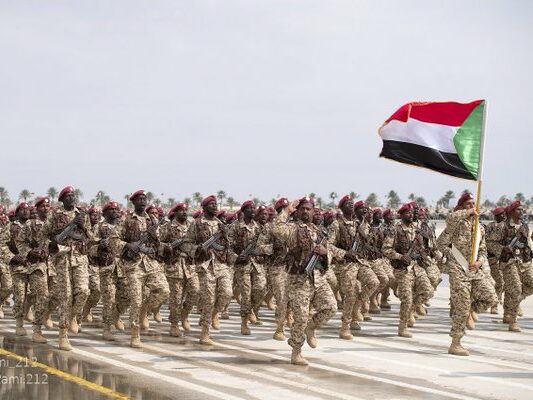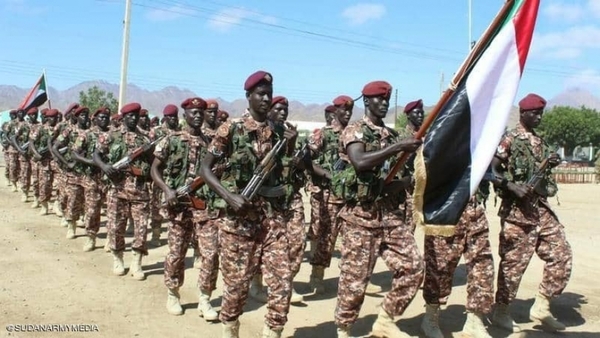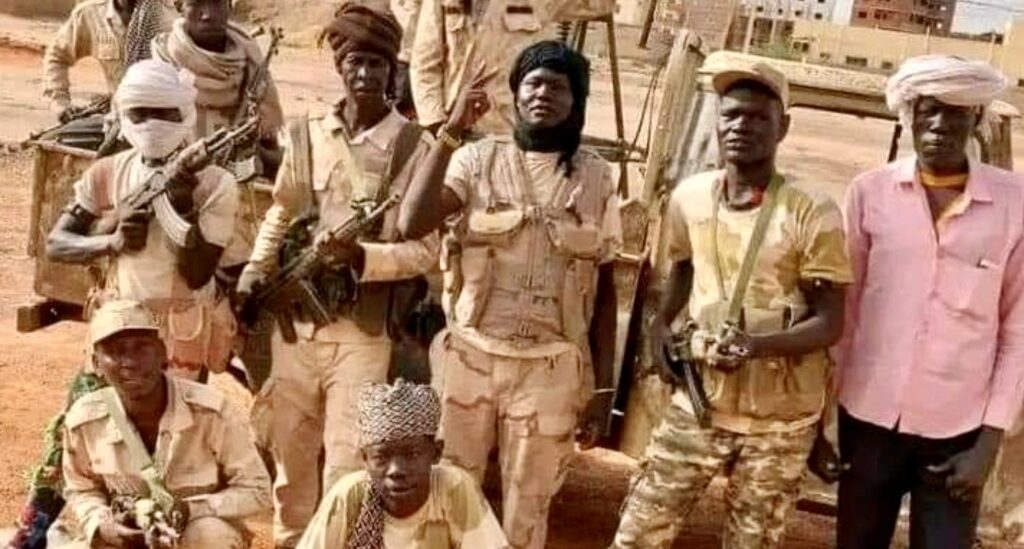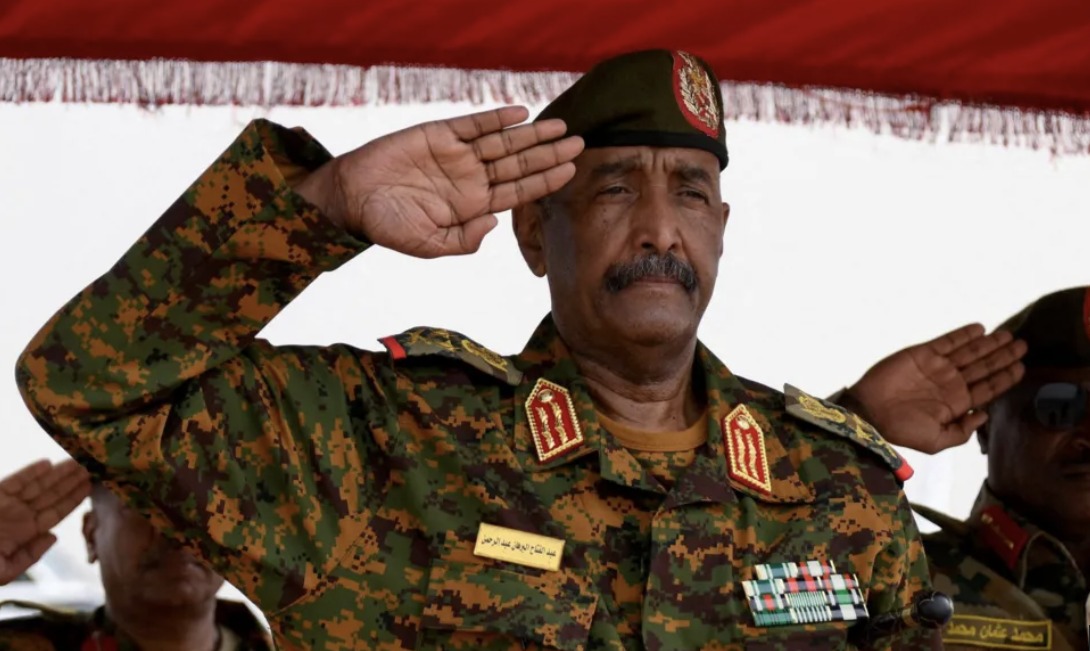In the heart of Africa, Sudan stands on a precipice—a nation whose very sovereignty, unity, and identity are being tested by a brutal conflict that erupted in April 2023. What has often been simplistically and misleadingly characterized in global media and diplomatic circles as “a war between two generals” or “a clash between two armed factions” is, in reality, a far more profound and consequential struggle.
This narrative—of two equal sides battling for power—obscures critical truths, undermines Sudan’s sovereignty, and dangerously contributes to prolonging the suffering of millions of innocent Sudanese. At its core, this war is not one of competing ambitions between military men. It is a war between a national army tasked with defending the state and a foreign-backed militia accused of committing atrocities and fragmenting the country.
The Sudanese Armed Forces (SAF): The Nation’s Constitutional Shield


The Sudanese Armed Forces (SAF) is the legitimate, sovereign military institution of Sudan. It is the entity mandated by the Constitution to protect the nation’s borders, defend its sovereignty, and ensure the stability of its people and institutions. While the SAF, like many national armies in post-colonial Africa, has a complex history, it remains the legal and institutional bedrock of the Sudanese state.
Following the outbreak of war with the Rapid Support Forces (RSF), millions of Sudanese rallied in support of their Armed Forces. From the eastern Red Sea region to the heartland of northern Sudan, from Kordofan to the outskirts of Darfur, civilians formed resistance committees, community defense units, and volunteer networks to support SAF logistically, politically, and emotionally. These are not the actions of a population caught between “two evils.” They are the choices of a people defending their nation against fragmentation and chaos.
The RSF: A Foreign-Backed Paramilitary Force Fueled by External Interests

In stark contrast, the RSF is a paramilitary force that emerged from the Janjaweed militias responsible for horrific crimes during the Darfur conflict in the early 2000s. Over the years, the RSF has been implicated in war crimes, mass rape, looting, ethnic cleansing, and targeted assassinations.
What is even more alarming is the role of foreign powers in fueling the RSF’s military capabilities. The United Arab Emirates (UAE), in particular, has been accused of supplying weapons, logistical support, and financing to the RSF through illicit arms shipments disguised as humanitarian aid. Chad provides sanctuary and logistical routes. Mercenaries from Colombia, Niger, Mali, and Chad have been recruited and deployed as foot soldiers in what has effectively become a transnational mercenary campaign against the Sudanese state.
This is not a war between two Sudanese forces. It is a war between Sudan and a proxy militia driven by foreign ambitions and illicit regional power plays. Attempting to portray these two entities as moral and structural equals is not only inaccurate—it is dangerously dishonest.
The Global Narrative: A Weapon of Mass Mischaracterization
Much of the international media, as well as some humanitarian and diplomatic circles, have failed to grasp the nature of this war—or have chosen to ignore it. By labeling the conflict as a “fight between rival generals,” the international community inadvertently (or deliberately) perpetuates a false equivalency that places the national army and a rogue militia on the same level.
This language is not just misleading—it is harmful. It distorts the legal and moral legitimacy of the SAF, undermines Sudan’s sovereignty, and lends undue legitimacy to the RSF’s actions. Worse still, this narrative emboldens the RSF, giving it cover to continue committing war crimes under the guise of being one half of a civil conflict.
Every time a peace proposal calls for “ceasefire between the warring sides,” or “power-sharing between SAF and RSF,” it legitimizes the idea that the RSF is a stakeholder in the future of Sudan rather than what it truly is: a destabilizing force working to fragment and loot the country.
Human Suffering and the Consequences of Moral Equivalence
The Sudanese people are paying the price for this false narrative. Over 10 million people have been displaced. Cities such as El Geneina and Nyala have been reduced to rubble. Ethnic minorities, particularly in Darfur, have suffered massacres reminiscent of the genocide in the early 2000s. In Khartoum, once a vibrant capital, RSF fighters have turned neighborhoods into zones of horror—occupied homes, mass sexual violence, and looting on an industrial scale.
To equate those defending their land, families, and sovereignty with those perpetrating these crimes is an injustice of the highest order. It is a betrayal of the Sudanese people’s sacrifices and an erasure of the legitimate struggle for nationhood.
Neutrality in the Face of Atrocity Is Complicity
Those who promote or even passively accept this false equivalence between SAF and RSF may claim neutrality. But neutrality in the face of injustice is not impartiality—it is complicity. To remain neutral when a state is attacked by a foreign-funded militia is to align oneself with the aggressor.
Sudan does not need external forces trying to impose a false balance. It needs principled support for its sovereignty, its people’s right to self-determination, and the defeat of a criminal militia that thrives on chaos.
The Way Forward: Clarity, Justice, and Solidarity
To bring peace to Sudan, the world must first recognize the nature of the conflict. Sudan’s Armed Forces, while not perfect, are the country’s constitutional guardians. They must be reformed and democratized through national processes—not dismantled in foreign-brokered deals with warlords. The RSF must be disarmed, disbanded, and held accountable for its crimes.
Sudanese civil society, youth, and grassroots resistance committees are already showing the way. They are not calling for equivalence. They are calling for justice, dignity, and a future without militias, mercenaries, or foreign interference.
Sudan’s war is not a war between two generals. It is a war for national survival—and the world must choose where it stands.


